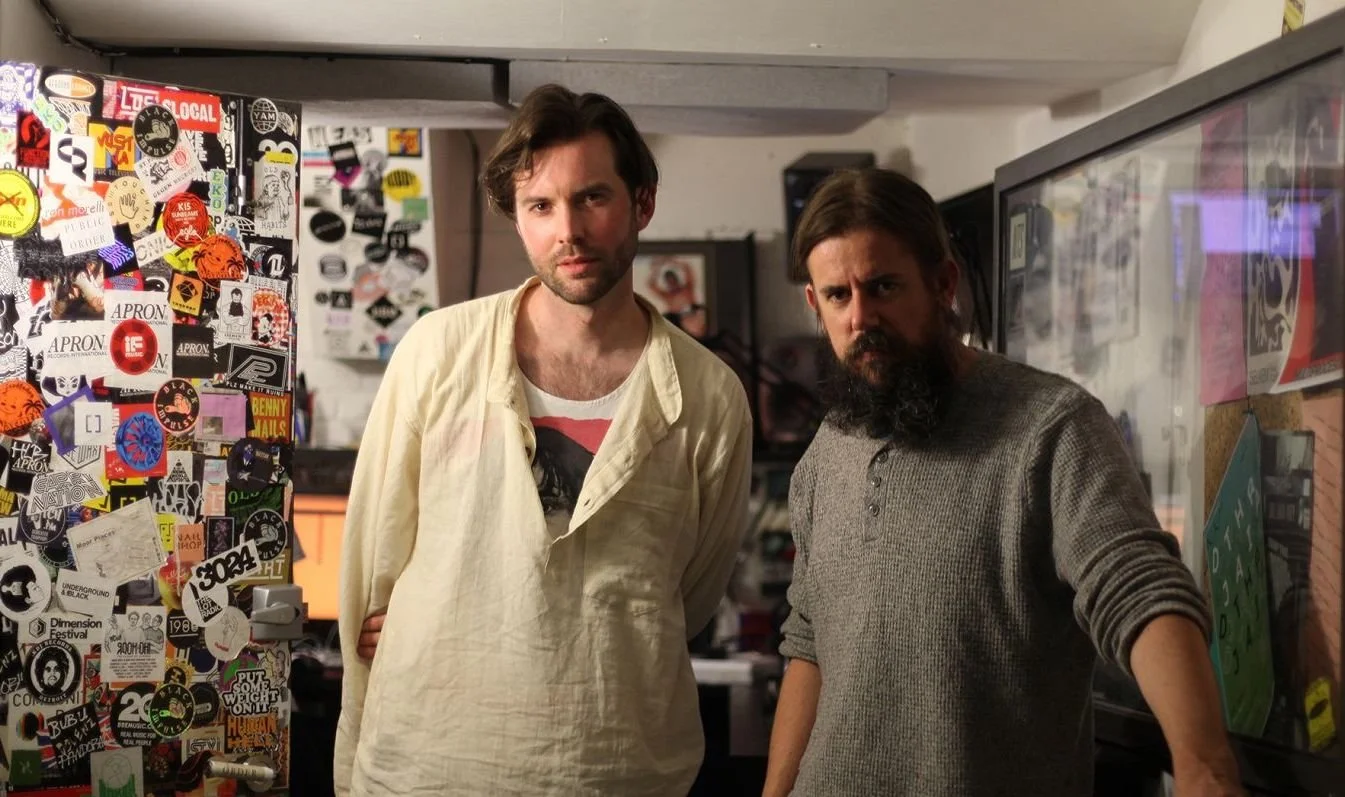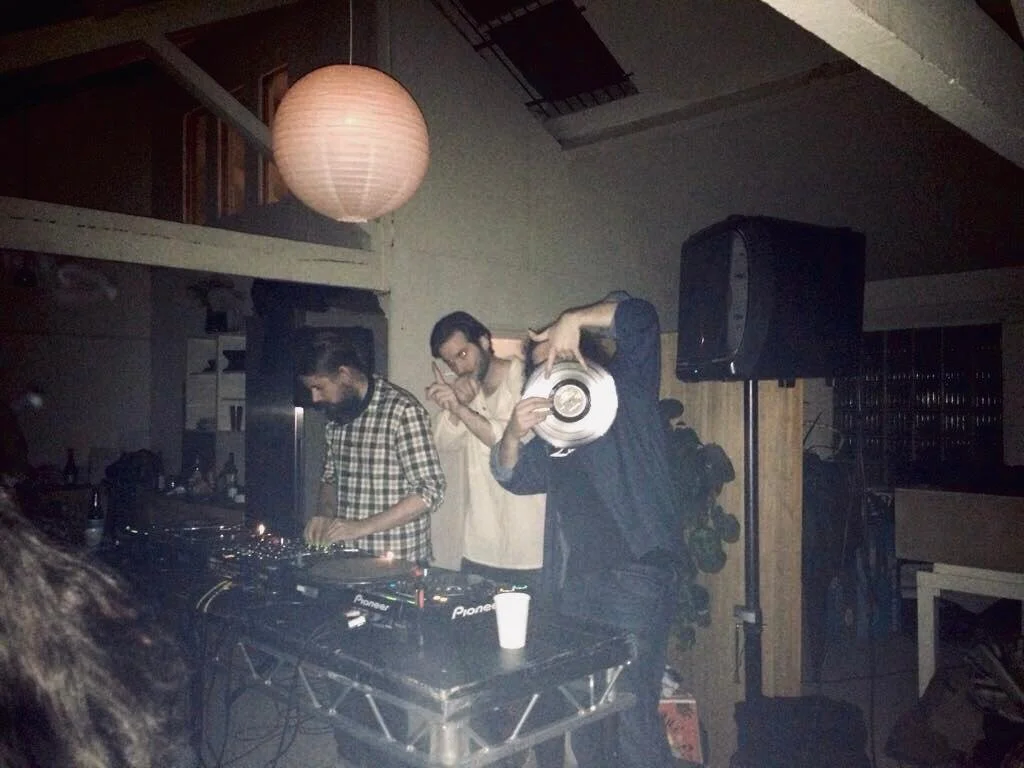On Taste and Good Music with Lovefingers & Alex Bradley
It’s commonly understood that many of life’s most fulfilling experiences come from some sort of investment or commitment to something. There is great satisfaction to be found in dedication, in going deeper, deeper and deeper into one facet of life, or art, or relationship. The dedication of one’s time to indulging in or engaging with music in some form, is surely, a perfect demonstration of this notion. With every iteration that one takes deeper into some area of musical understanding, or with every decade of life spent consciously and intently listening to music, the sense of knowing one’s surroundings intensifies. From this position, is the claim that one knows “good” music from “bad” music increasingly justified? From here, previously complex ideas become easily digestible, the abstract and the minimal communicate as clearly as the obvious. But, it’s an endless pit, an infinite zoom, a moving horizon, going deeper into sound and your understanding of it. It’s like staring at a Jackson Pollock painting, first from the other side of the gallery; noticing broad detail, appreciating the colours, the patterns, the obvious ideas and melodies. Then stepping closer, realising that there is much more complexity than first understood, that there is more of the same but you see the same ideas with greater depth. Stepping closer you begin to feel that you are seeing things no one else has. The people stood at the back of the room don’t know how good this is, because they didn’t take the time to step forward for closer inspection. In mathematics and in nature there is the concept of fractals. A fractal is a never-ending pattern; infinitely complex patterns that are self-similar across different scales so whether you are up close or far away, they appear the same. That’s the endlessly deepening journey into the world of music that many of us music nerds are on. Few can claim to be deeper on this journey than these world-renowned music men: LA’s Andrew “Lovefingers” Hogge and London’s Alex Bradley. So Moon Roq’s Adam sat down for a three way chat with them both and ideas on musical taste and on the right to know good music, quickly emerged.
Both have creative outlets in their daytime endeavours: Andrew is a graphic designer and Alex a boutique tailor. Both have established parties in their respective cities and both have highly regarded record labels: Andrew with the fabled ESP Institute imprint and Alex with the more recently founded but equally stellar Utopia Records. And both are stupidly brilliant DJs in their own way, but certainly share a more patient and considered way of doing things behind a set of turntables. Both Alex and Andrew played 6 hour sets in the back garden of the now closed Mick’s Garage, in Hackney Wick, East London, on different summer days in 2019. Alex’s set was a more soulful and emotive one, taking dancers on a graceful journey through Chicago house and some Loft classics, before meeting Lovefingers’s more heads-down, darker and dirty set with Los Hermanos’ “Quetzal”, a track they actually both slipped into their sets.
PART ONE
How did you guys meet?
Alex: It was through someone who was an old friend of mine. Andrew was DJing at a bar in town and we got that intro.
When?
Alex: It wasn’t that long ago, we’ve done quite a few things together in a short space of time. I followed Andrew through the Lovefingers blog for years and years, and along the line, I think Andrew heard about my parties. But we were only super connected pretty recently. I get the feeling Andrew is pretty similar to me, where we like things when they’re quite natural and that’s kind of been lost a lot with the internet world. What was quite nice about this was that we were introduced in person. We hung out in person, got to talk about music, got to talk about things. Then it’s like a real natural connection, Andrew understanding the way I do things, and me wanting to support what he does. So putting on a night, in a space happened organically. The other stuff we did together like DJing at Giant Steps was more people from the outside looking in at us and maybe thinking ‘oh that’s quite a cool connection’. So, that’s kind of how that happened.
Andrew: For me, most the time that I meet somebody new, it comes from the place of taste and curation. People from the other side of the world will latch onto something that I’ve put out, not because of anything to do with me, but because of the taste. Before DJing it was just the blog and all that kind of stuff, there’s so many people I’ve met through that which is kind of cool, because you don’t have to sit there and chat through a load of bullshit to get to the interesting stuff.
Lovefingers DJing at Alex’s infamous London loft
Now, 99% of the time, you meet someone online before you meet them in person. When you meet someone in person, it could be a completely different story. They may have some different sort of personality trait that’s completely failed in person.
Alex: People can create a persona online.
Andrew: The good thing about music in general is it’s a conversation… with the blog, I wasn’t a journalist saying anything, I was literally just letting the music speak for itself. The music has to do the talking, the lyrics have to do the talking.
Alex: When you’re heavy into music, especially DJing as it’s such a strange medium, it’s not like making an album as a musician, you’re more putting your taste out there.
It’s a part of your identity as well and people can see that in advance, before they actually know you as a person.
Alex: You can get a feeling of what these people are going to be like philosophically, spiritually, and emotionally before you even meet them. Someone who just plays banging big room techno for 90 minutes, you might be wrong, but often you can get a good idea of how this person is going to be.
Andrew: There is a lot of sides to this. There’s what you assume about somebody, and there’s reasons why they might be in that bucket: like, a) It’s their job or b) maybe it is all they’re interested in…
Initially, the same thing with DJing and record collections is you have one thing, and then the next thing you put with it, that equals a third thing. It’s not just the combination of this song and this song, there’s a third thing. The more you do that, the more you’re forming a narrative. The more you do that, you’re whittling down this person’s personality and taste. If you’re playing record A and record B is the other side of the world, some total other shit, the contrast of those two things says a lot about the person. The thing in between those two things is, “why are those two things connecting?” “What do you like about that? What do you like about this…?” Span that over however many hours, and you have a real conversation, just through the music. I think that’s why people really identify with each other, just through music selection.
It’s certainly something that you hear about quite a lot. You make online friends with people on the other side of the world, you share songs, and find similarities in your own taste there. Looking across the relationships you’ve developed over the last decade, do you feel more affinity with your local music scene, or more with a sort of digital scene, where you have people like Alex, who aren’t anywhere near you physically but are absolutely a part of your scene and sound.
Andrew: Ha, a really good question!
Alex: We’re both responsible for something not really being there and going out and creating it within our local community, in opposed to just trying to be DJs, and putting on events, curating everything like that. You try and find your people by providing them with something.
Andrew: You’re very proud of the parties that you’ve done, they’re very commendable. I haven’t done as much in that department. I have ESP parties, but I’ve only been doing those for a little bit. We had the Black Disco parties for a long time, but to be honest, it’s not like we have lifers in our crowd. There are some people who I know from back in the day, but where I live, I feel like it’s more fleeting.
Alex: It’s also an age thing, you know, because when you’re younger you see a generation of people, obviously me putting on events. You see the generational changes. Your peers and friends and people that you all grew up with that all wanted to come to the parties, their lives change, and you have to evolve, they want to go out less and less. Some younger people want to go out, and they’ve got the people that they follow. So, it’s also a lot to do with age.
Andrew: That’s a really good point, when I lived in New York, most of my friends moved out of the city to Europe or California. Half of them have kids. Once in a while you can get this wild night out of them.
If this is what you do and you’re into presenting things to people, and you enjoy telling stories through music, and people enjoy having you do it for them, then you just find a way to do it. If you don’t have the audience at a drop of a hat, fuck it, get on a plane and go somewhere where you can amass the people that are interested in what you’re doing. If the audience is something that’s going to be split across a bunch of different functions then it’s not the end of the world. I guess you only really get everyone in one place for festival weekends.
Alex: You’re also dictated to by the local scene, by a lot of things outside of your control, like if there’s any good nightclubs, venues, what the licensing deals are, especially London, and I imagine LA is pretty much the same, those things are outside of your control. I personally like that old school approach of being a resident at the nightclub. You play there every week, that’s what you are and that’s what you do, and sure you go and play in some bigger nightclubs around the world, but you’re not a travelling DJ having to do that all the time. But recently, especially in the UK, there hasn’t been that kind of way of doing things with maybe one or two resident DJs in the major nightclubs. Craig Richards…
Obviously it’s amazing to have these big superstar DJs sometimes, big names, legends coming to your city, as we do in London, Paris, Berlin etc. That’s a great thing, but the flip side of that is you don’t have that sense of community.
Alex: That’s an English thing, honestly. Maybe Andrew will say something similar in America. There’s many reasons why people don’t want to look at the guy that just looks like them, they want to be into something different… for me, in Europe, it’s only really Amsterdam and Berlin that really seem to support their local DJs and have that kind of thing happen. The clubs and the venues in London, it’s about money really, being assured that you’ve got the numbers. Growing something organically with local talent and stuff like that, it’s not necessarily how people tend to go here.
You would really hope that in a post-pandemic type world, some of these lessons will be learned. It’s a question of values, isn’t it?
Alex: That’s what I’m kind of talking about with the London thing, it’s a global scene in the big clubs because of that. My philosophy and why I started doing events was somewhat of a backlash against that. The people that I knew who wanted to go out, they didn’t want to go to those clubs because they don’t have the attention to detail. I was able to build nights to a point where they were getting 1000 people without big name or international DJs, because of the venue, because of the crowd, because of the sound. If nightclubs in London focused on that, they wouldn’t need to spend 15k on a DJ from wherever. In fact, I’d imagine it may be like a club like Panorama Bar used to be like, where if you make a club so shit hot, people will come and play there for less anyway. It’s quite short-sighted to ignore that and get into bidding wars with big DJs. It also means that the crowd is there to just watch a DJ, which is boring.
Andrew: Where I live, there’s only a few clubs, they’re all really commercial, New York is a hell of a lot better…
Alex: Did LA ever have a good house scene?
Andrew: House music in LA has got a really long history, we had old school venues where the first wave of house hit on the west coast. A lot of those guys have become household names around here, but it’s not like they’re institutions. London tries to build institutions, whether they fail or not.
Alex: They managed them for a couple years…
Andrew: Everyone in London has thought that Ministry is shit for so many years now. When I went there for Harv, I was seriously fucking impressed with that room.
It’s amazing, the best sounding club in the country.
Andrew: It got a bad reputation because of the crowd, but if you put on something special there, you can create something incredible.
Alright. I just want to take it back a step, we were talking about operating within a niche somehow and how that can connect people despite being very far apart. So, again, that is a question of taste and identity. Alex how would you describe your musical taste, exactly?
Alex: It’s a very evolutionary thing. My original inspirations came from my father’s record collection. I was fortunate that he had Miles Davis and Captain Beefheart records, standard dad rock of Van Morrison and all that, as well. It was really the ideology of him and what he was playing to me, coinciding with what I was hearing in my own scope and what I was drawn to in that sense. My uncle was in rock bands and had a big anti-vietnam hit. I grew up in this kind of headspace of people. My father was quite an intense guy in terms of making sure that we knew what was what, from his point of view. I still went against him and got into four to the floor music, that he just thought was for dumb people.
Why did you think it was good though?
Alex: I’m a more extroverted person, and less intent on being cerebral, all the time. I like to dance and I like to socialise. I was also intent on finding the root of all music. Nearly every genre has good music within it. We know about Mancuso and all that kind of stuff, the roots of dance music were quite hippy, and spiritual and about togetherness, breaking down boundaries. Mancuso, Levan, Siano were all playing a concoction of very interesting music, and were playing rock and psych. Everything! Over the years I’ve got more into the lefty, psyche, cosmic stuff, which is kind of my childhood in a way. So, it’s all kind of come around full circle for me, musically. Over the last five years, the reason I got quite therapeutic with the music I wanted to listen to was because I was having a really different type of life, so it also coincides with where you’re at in your life. You might be really angry and go through a phase of just listening to punk music…
PART TWO
Alex you also mentioned there, within all types of music, there exists good music. But, conceptually, that tells me that there’s also bad music right…
Alex: Good music to me, anyway…
We all know it’s a subjective thing… Andrew how do you know what is good music? What makes you sure that you know, over someone else?
Andrew: I’m not sure these days, to be honest. When I was younger I had this annoying, “know it all” kind of mentality of having to get to the bottom of things and find things that are very hard to find! It wasn’t even just with music; it was with everything. Food, clothes, and all kinds of shit.
Andrew: If you’ve been digging for music and stuff for long enough, you realise there are things that grow organically from somebody’s creation, and then at some point a lot more people become informed about it, and then you have a huge plethora of imitations. The people that popularised it stole it from somewhere, but then if you go into your local record store, you find every Tom, Dick, and Harry trying to do this thing for a number of years thinking ‘I can have that dream too’ and then that’s when you have the real outsider shit that’s horrible, and then you have the stuff that’s mediocre, getting towards acceptability commercially, there’s a huge grey area of all that stuff. All the stuff on the margin, is stuff that people like us get most excited about. But, I also think you can take that too far. I have friends that are vinyl hustlers forever, and they’re always finding the craziest shit always telling me to ‘check this out’ and I’m like yeah that’s cool but it’s actually shit and you’re pretending that it’s cool because it’s obscure, but you’re not really listening to it, are you, because the guy can’t sing for shit, or the production is so bad that I can’t get past it because it’s grating on my ears.
Alex: That happens a lot in the sort of rare disco, soulful disco scene. A lot of those records are worth a lot of money, but they weren’t big records at the time, for a good reason.
And they churned that shit out back in the day…
Andrew: Basically you have your hit, you have your golden goose, and then you have the people who really want to make that, and can’t really make it that well, and you also have an industry that’s trying to do it from the other end, like they’re trying to make people do this thing because they know it’s going to monetise and you end up with all this sub-par garbage. Yeah there’s needles in the haystacks, amazing tracks on B sides, where that person got their way and was able to do what they wanted with one track on the album.
What about the process? Obviously, Andrew, you have a huge record collection and you made a name for yourself with the blog. That is just someone who has listened, you’ve dedicated hours, days, weeks, months, years of your life to the process of listening to music. You’ve heard tonnes of great music, you’ve heard tonnes of shit music. Do you think there’s anything in that? The process, at a mechanical or biological level, where you just get better at listening to music?
Andrew: Most the time, the music is wholly dependent on the context you’re listening to it in. Something that happens daily in my house, is that I’ll come home with a couple of records, I’ll put the records on, and my wife is like “what the fuck? What is this?” She’s like “why do you always listen to such garbage?” I’ll be like, ‘there’s a good track on this record!’ I’ll listen to the whole thing, and it makes you appreciate the one track more. I come from this other moment where I listen to the whole thing because there might be two bars that I can lift out and use it. That goes back to what I was saying about record hustlers… I used to meet up with dudes who’d have a bunch of crates of shit they’d hold up in an apartment in the city, and they’d make appointments for like hip-hop producers to come and get breaks to make beats with. They put the needle down right on the break, take it off right before the rest of the record starts, and are like ‘oh my god, I have to have it’… it’s 200 bucks. You get home, the entire record is garbage, but there’s one break that’s big. It makes me think, how many records do I have like that, where I can’t remember what’s good about it. When you have someone else who’s as knowledgeable in music, like Heidi, my wife, has been in dance music longer than I have, and she’s one of the people that opened the Ministry [of Sound], and always surprises me with this crazy depth of knowledge – not just dance music, just everything. And you kind of start to think, it’s like an existential crisis within music – how much time am I wasting listening to crap, just to find the good stuff? When I could just listen to good stuff? I think that’s why you have a lot of people just buying compilations… At the same time, someone told me once with the blog, that it was interesting because I would put a lot of songs on there that weren’t great, but there was something that was great about them. One of the guys from Honey Soundsystem said how much patience do you give to trying to convince yourself something is good, before thinking actually it’s not…
Lovefinger’s Hand Crafted Bespoke Turntable Cabinet
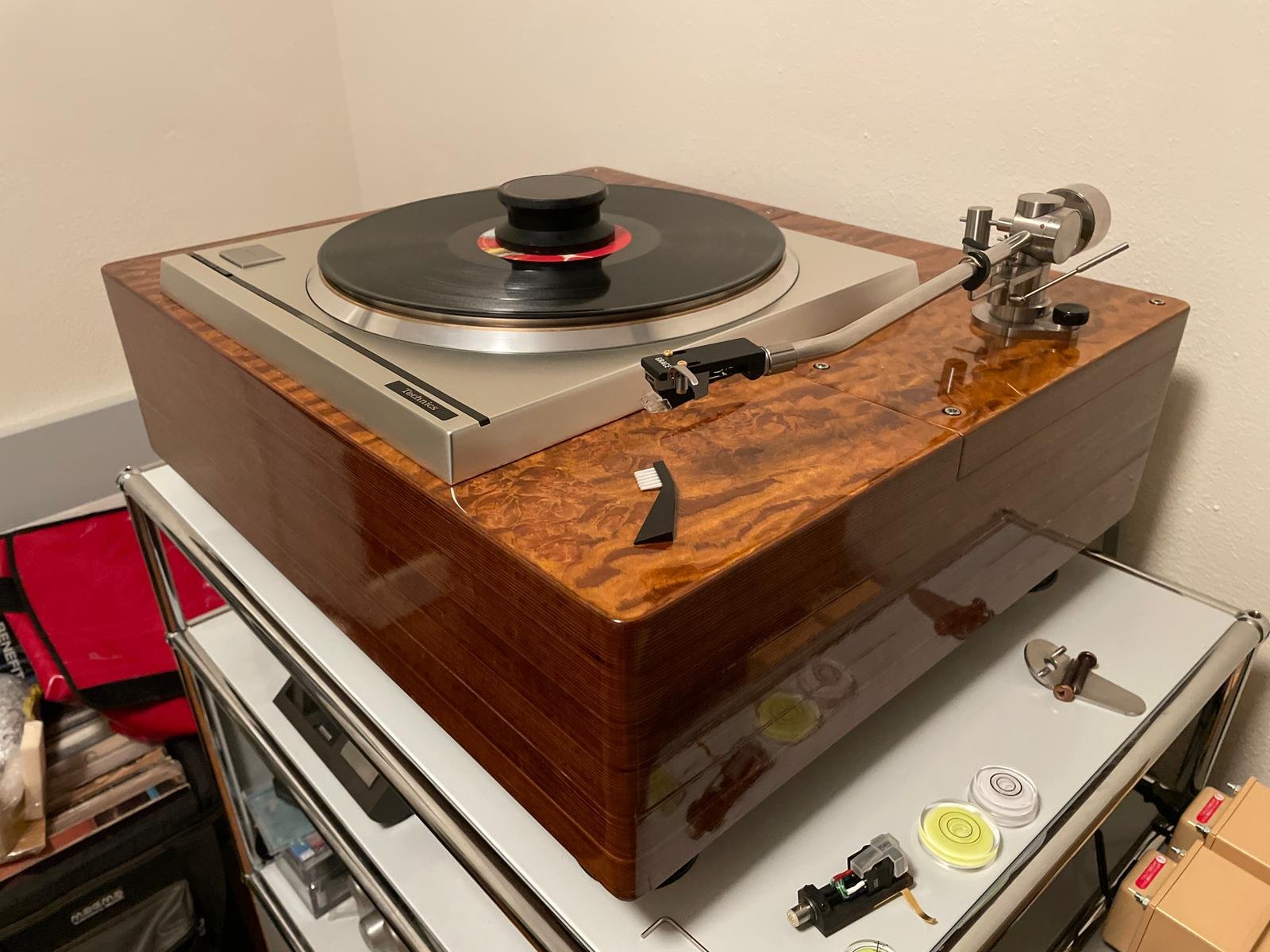
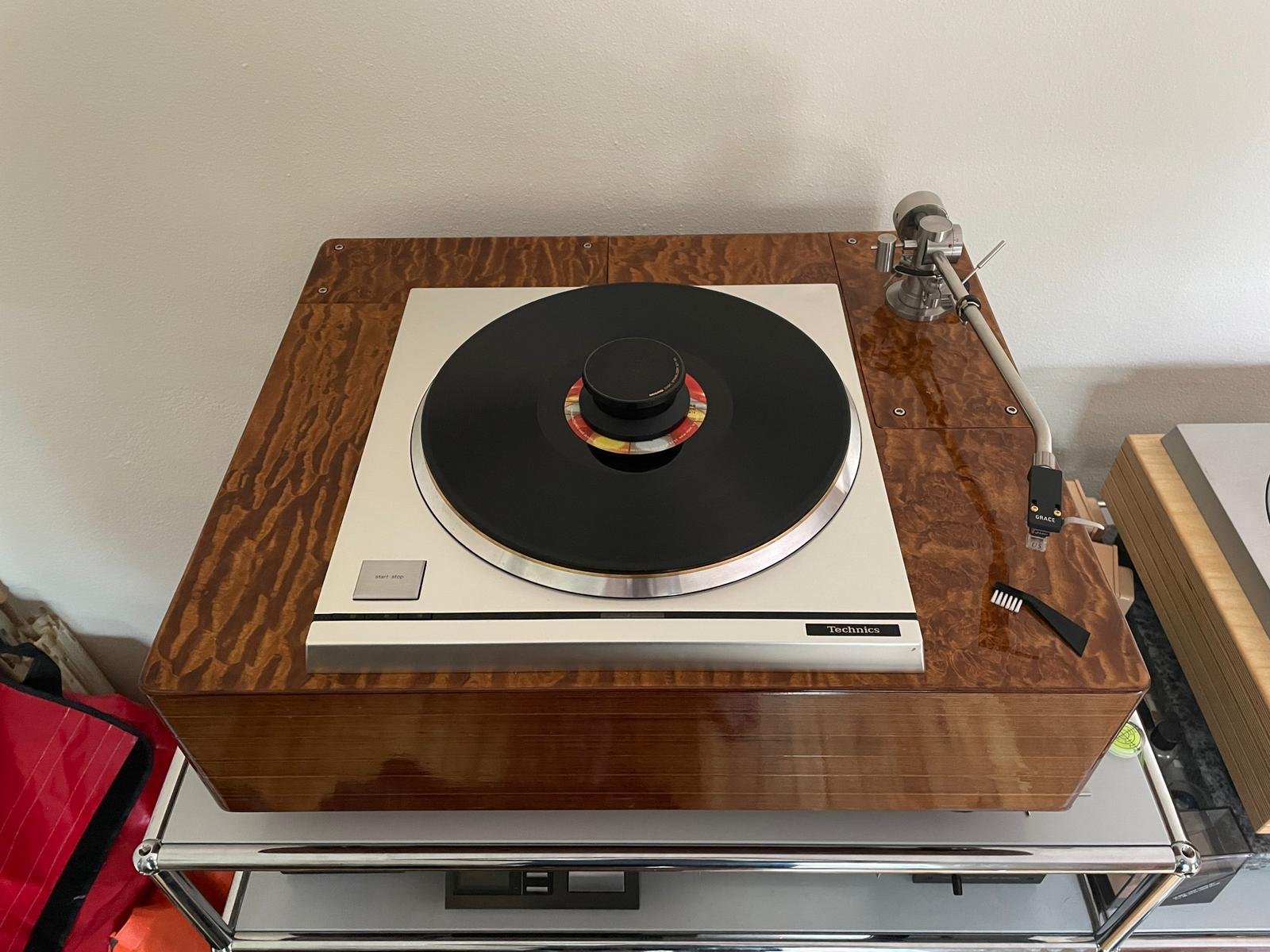
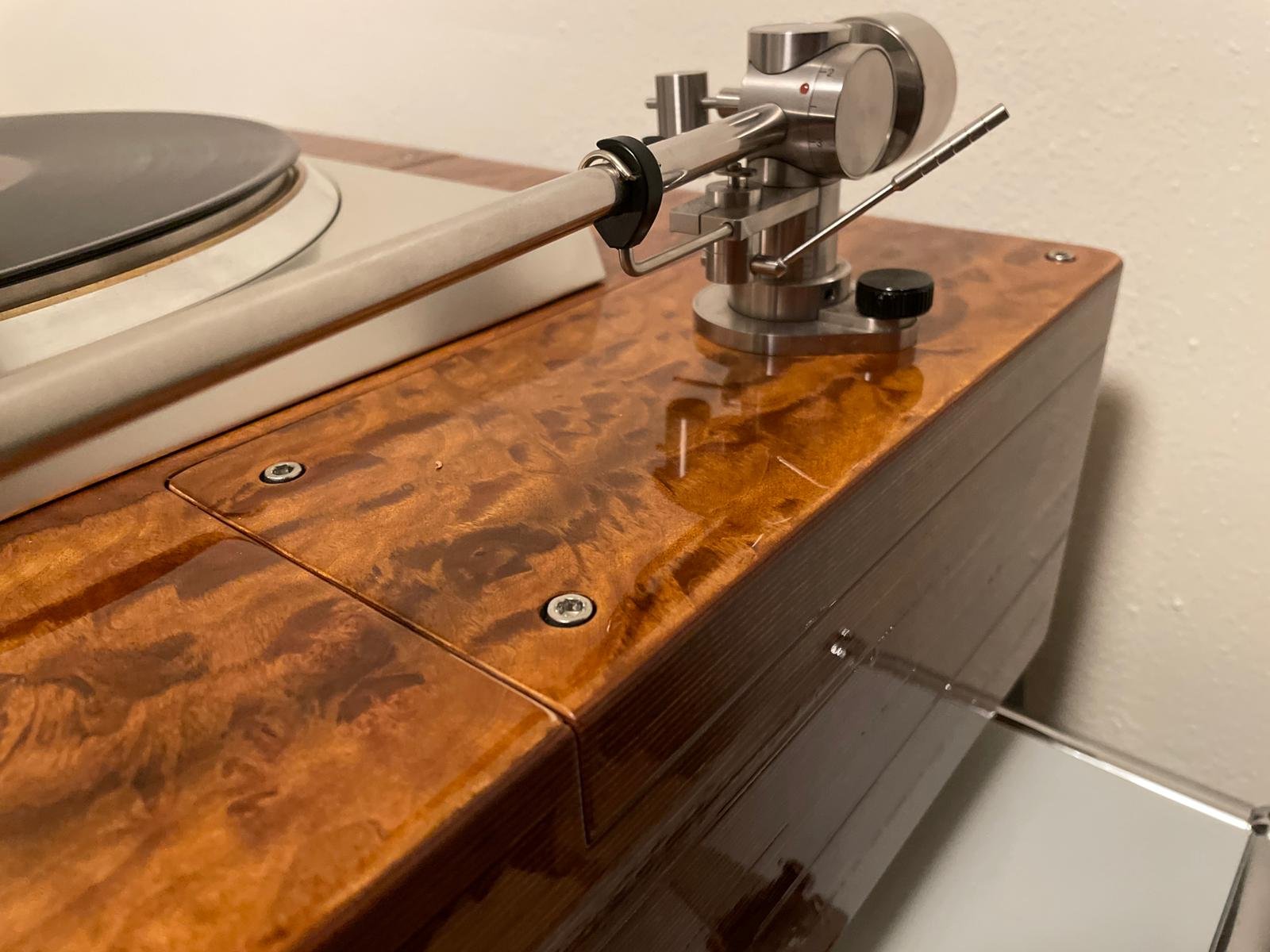
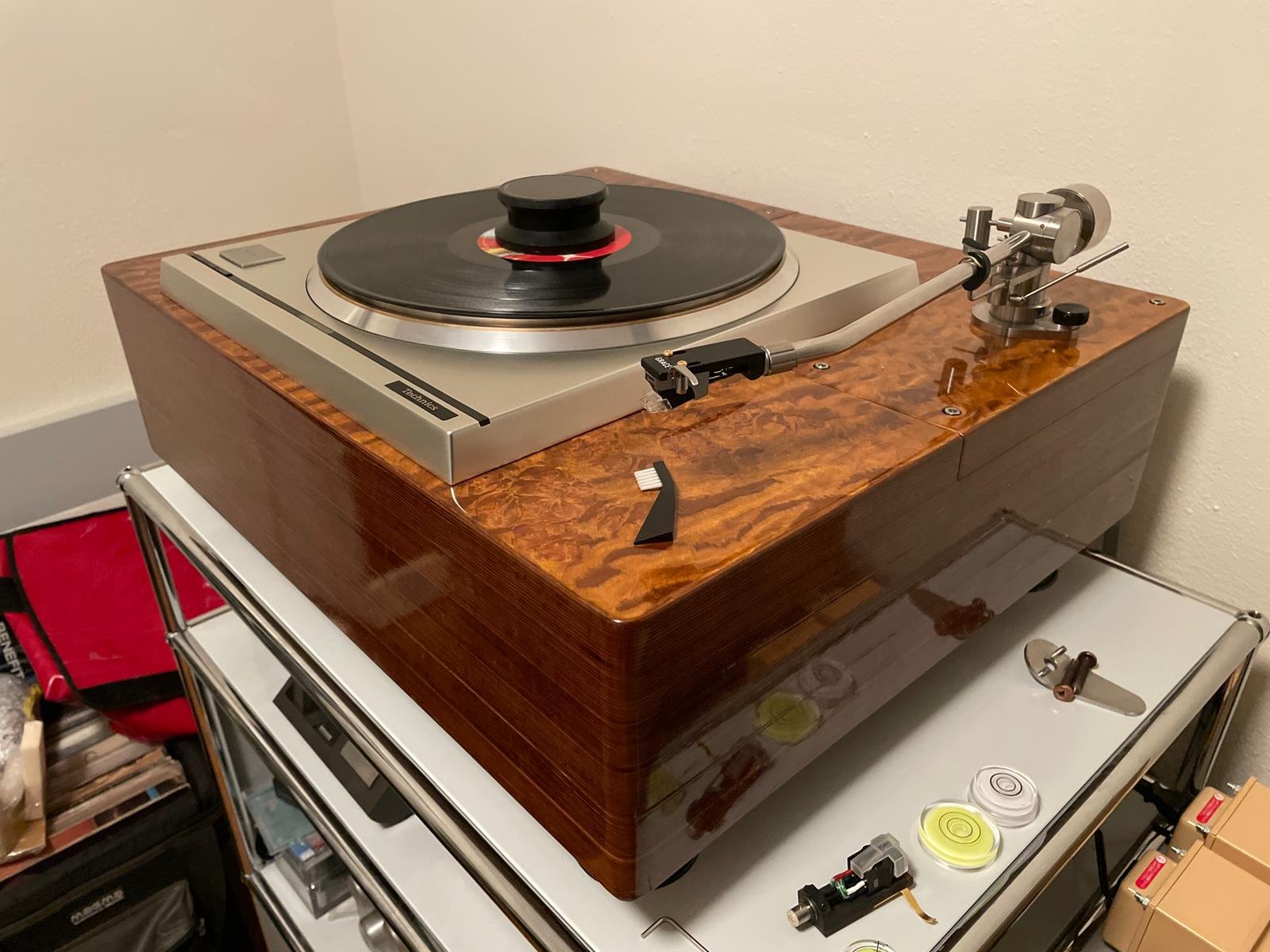
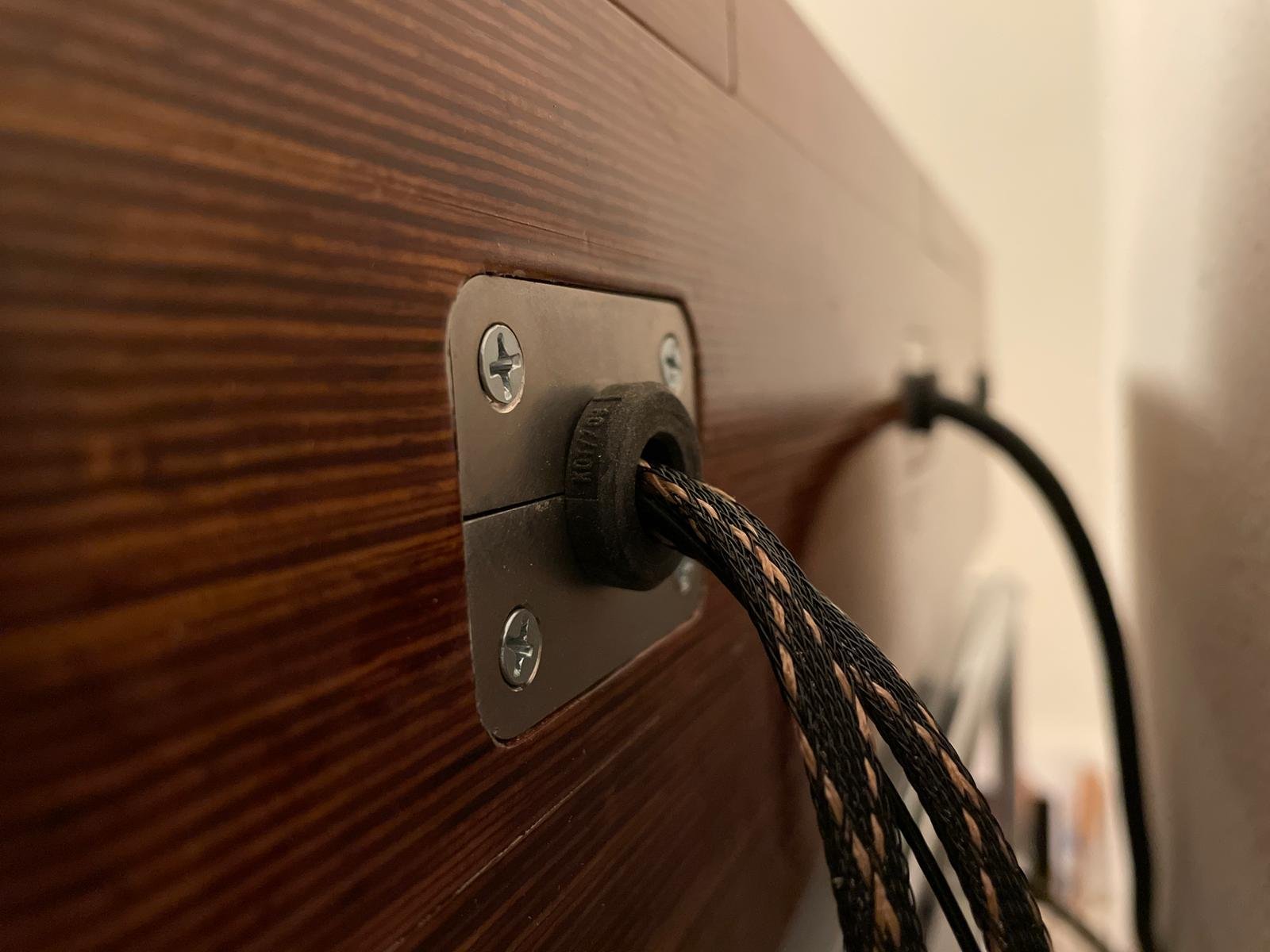
And what would you call the process of bringing all of these different things together, some bad, some good, and presenting in some form, is that essentially curation?
Andrew: Well, curation is a really over-used word. It’s a really important word, and curators are some of the smartest people I know. Technically, it can mean that, but selection and editing for example, there’s a method to that, and curation is like the pinnacle of that stuff. I’ve seen curators like Helen Molesworth, for example, who’s an art curator, I’ve seen shows that she’s curated, that the curation is as much a form of art as the art itself. It’s so intelligent and there’s such a subscript to it and you have to deal with space, and scale, and size and light, the proximity of things to each other… all these variables. It takes a lot more than “fuck, I’ve got 3 mins, whats the next song I’m gonna play?”
Alex: The word “curation” gets bandied about quite easily. If you’re coming from an art world, like Andrew does, and I come from a design and art world. I make clothing for some of the biggest art curators…
Where does the concept of curation come in contact with your design work, Alex?
Alex: Having worked with art curators and creative directors and people like that, you understand the attention to detail of how you create a concept so that it isn’t flawed, so that it’s the right experience. It’s very beautiful, like Andrew says, an art form in itself, when it’s done right. I think the word “curated” has been put out there so much in recent times is because there are quite a few DJs out there who aren’t technical DJs, the line up is “curated by” somebody… so it’s become a crappy word. What is “curation”? You just chose who played on the line ups… No, if you put on an event and you do everything with the right attention to detail, you’re “curating” every single element of the event, affecting the experience the people are having is high class, and there’s something quite beautiful about that…
Andrew: I didn’t mean to shit on it, I’m not one of those people that whenever something gets used ten times I’m like “fuck it, on to the next…” I just think it’s a weighty, important word, and when someone’s like “oh yeah I curated this bag of groceries” it’s an almost transient vocabulary.
Alex: I’ve got my food order on lock, man…
Andrew: Curating a line up is also a really major talent. I’ve seen people that do it from the complete wrong way, and I’ve seen people who do it and it will change your life at the end of that event because the event is curated well, because the flow of the music went properly, nothing was too long, nothing was too short. The hand-off made sense, all the tiny details add up! In parallel to what I was saying about the gallery, it’s the same sort of thing. When It comes to putting together a DJ mix, yeah, you can say you’re curating it, in a way, but it’s a bit more of being an editor…
Alex: Well, I guess what Adam’s getting to is that we do curate what we both do, we bring a lot of formats together that are all cohesive. From the flyers that we do for the event, from the music that came out on the label, from the design element on the record sleeve, through to the mixtape you put out to accommodate the whole sound. What the best curators do, especially in the club world, is essentially create a world for people to go and experience. I guess that’s where you’re coming from Adam…
I guess the most obvious part of that could also be your record labels… you’re both curating artists, you’re both curating music within this world that you’ve created with Utopia Records Alex and the ESP Institute Andrew. I mean, really you’ve hit the nail on the head, I see you both as curators in the real sense, you’re doing that in different ways. I’m interested to hear what role curation plays in being a tailor, Alex?
Alex: Well, after many years of crappy jobs, I managed to get into a company and a place that was very interesting, because it was a traditional tailoring house, quite stuffy, making clothing for famous people and the gentry and the royalty… they’d been bought by someone who was quite a visionary and wanted to break down that classist situation and create something that was more contemporary and modern. Because it was a small company, I got to see how a very high level creative director works and how his philosophy comes through, from store design, to the clothing, to the advertising, to who he works with, everything. He was this kind of minimalist who thought a lot about the experiential situation, so every detail was analysed and seen through. Tailoring was part of what we did, but realistically what I worked for was a brand, that was trying to appeal to the absolute elite, almost in the snobbery of the art and design world, who are the kinds of clients that we had. For me to be in this environment and witness him at work, combined with the knowledge I already had… the nightclubs everybody talks about from years gone by, whether it is The Garage, Sound Factory… everything has a decision, from those working on the door, from where the lighting is, to which sound system you use, there’s a lot of decisions that will go into that environment, which will then have a big impact on what the atmosphere is like, on everything really. So that’s what I got into, because I wasn’t a musician, so I thought the curation side could be that thing…
I completely understand your mild objection to this use of the word Andrew, but if you zoom in on certain parts of what you do, a DJ set is a curation of some time and of some sounds. You could select from x,y,z but you have selected a,b,c, so that’s a kind of mini curation, and then this thing that really appealed to you about the club world, was the curation of a club night. But, I have a question for both of you, because there’s a few reasons why someone could get into this “curation" type stuff… it could be, competitiveness?
Alex: Making something better than what’s out there…
Yeah! You want to have the rarest stuff, it could also be some kind of escapism, maybe therapy in a way, you dive into it to… I’ll put this to you, Andrew, what do you think it is that turns you on to that stuff… because clearly curation is something that you just do…
Andrew: I think what you said about zooming in and this micro/macro thing is something I think about everyday… everything is a structure, within a structure, within a structure. The more macro you get, you realise it’s all connected – a song, a label, a mix… there’s a universal way of when things are really good at the core of something… it emanates outwards… for instance, you have a DJ who has to bring the right songs with them, then play them in an order that’s more interesting than just playing song 1,2,3,4,5, and then there’s always variables too: the crowd has to be receptive to that, you have to choose the right language to speak to the crowd musically, but there’s also things like, is there water in the club? What’s the security like?
Alex: Toilet paper… the girls all leave if there’s no toilet paper…
Andrew: Has the sound been thought out well, so that you can be in a variety of places and enjoy it without it killing your ears, if you want to feel the bass more can you go in the middle and get that? Are the drinks affordable? Are you out-pricing the people who should be dancing at this thing?
Are you thinking of the social issues surrounding whether someone may want to go to this thing?
Andrew: Yeah, there was this terrible situation that happened in LA, where this kid wrote an open letter to all nightlife in LA, and put it online. It was something about going to see Honey Dijon play at this warehouse party in LA, and he felt unsafe, security were like gangsters roughing people up. He wrote this whole piece saying ‘why is this music that’s meant to be about inclusion, diversity and love placed somewhere where I feel endangered?’ All those variables, especially with so many conversations that are going on, in the world and in this industry. All those things are part of the curation, just because you can do something, doesn’t mean you should do something… I play loads of things that are predominantly queer, queer DJs, promoters, audience, bear parties, sex parties, and I will never take up space… no-ones chosen to play on this line-up in favour of me… you have to be mindful of being a guest, and be humble and grateful about it.
What’s the best context for this to happen? Should it be in a warehouse? Perhaps a club where there’s enough bass for this bass DJ? There’s a lot of variables that you have to pay attention to. It all comes with experience, there’s veterans who have been doing this for a long time. Veterans have learnt the hard way.
Alex: The curation thing really comes into understanding the right music to play in the right space, and that comes from the DJ, but of course the person who’s put on the event. The worst situation is when you get a rave in a club venue, and a club night in a rave venue. People might think clubbing and raving is the same thing, but they’re quite different… there’s lots of different ways of approaching the situation. I’ve done parties in lofts, strip clubs, warehouses, night clubs, and it can be great in all of those places, just so long as it’s approached by people who know what they’re doing.
Alex’s North-East London Loft Space
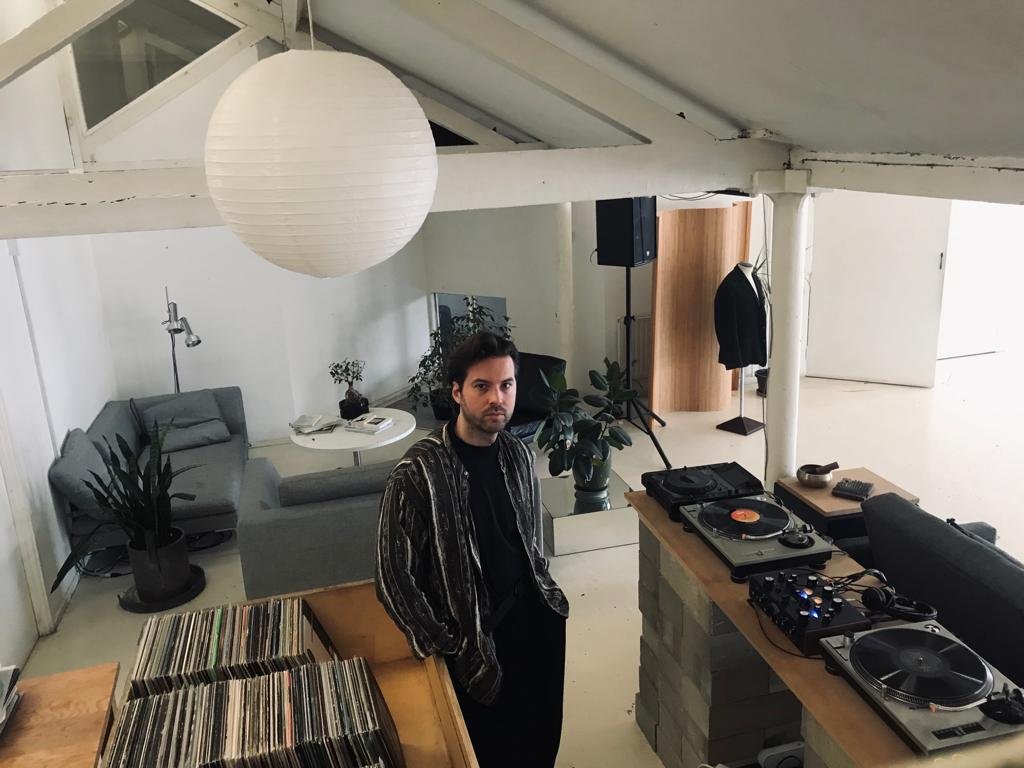

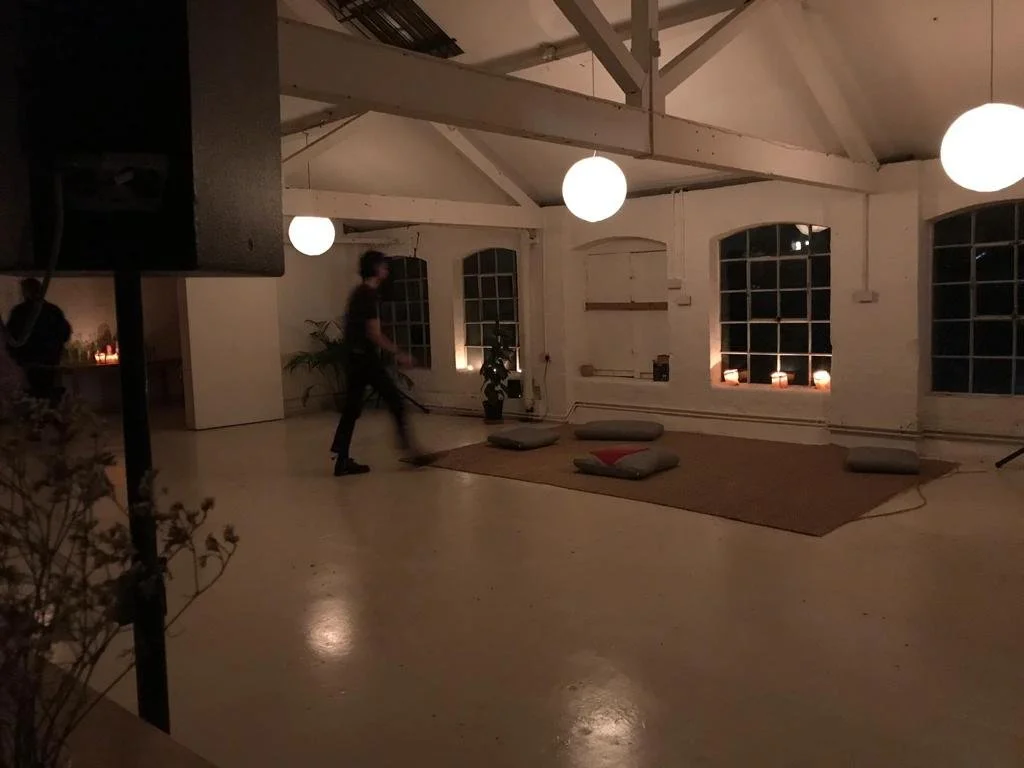
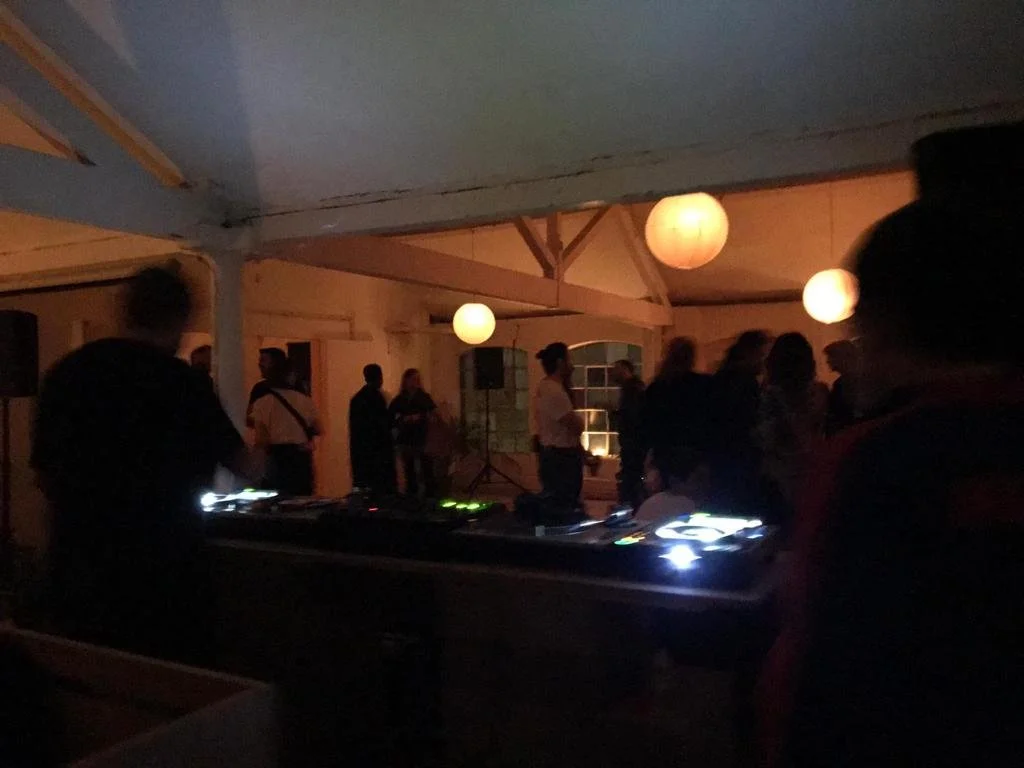
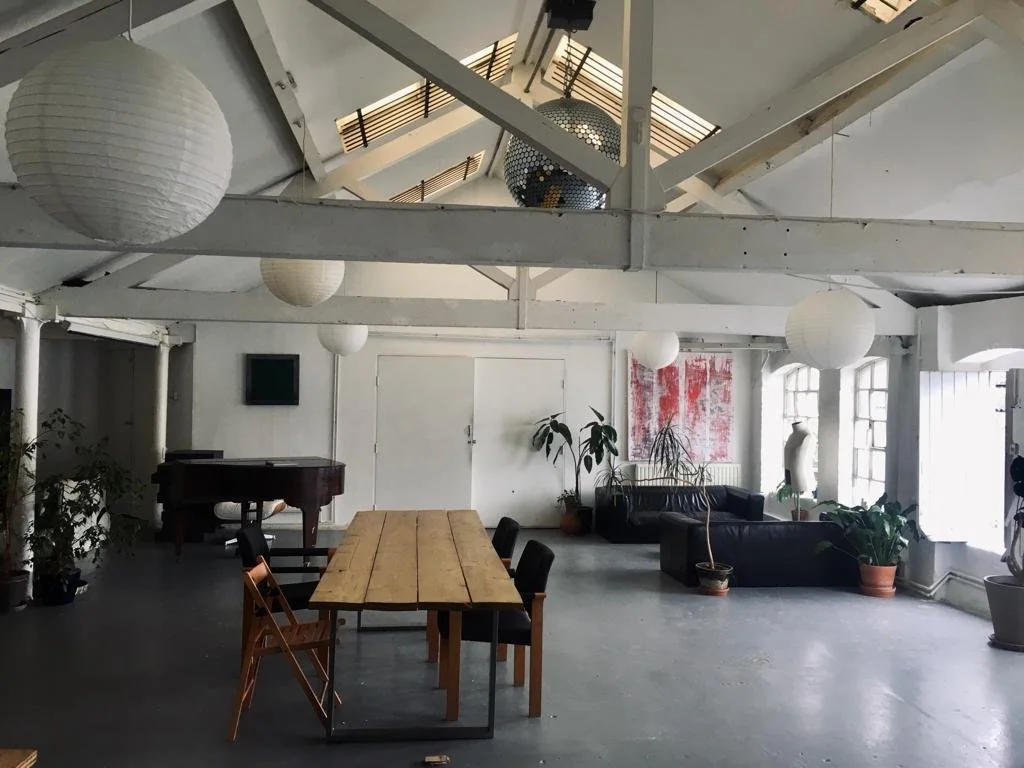
Andrew: It’s all about curating this existence that you want to be a part of… you’re happy being a part of, you feel some sort of camaraderie, or appreciation…
Alex: You think that happened naturally, before our time? Because of the internet, we can manipulate and curate a scene, or curate a philosophy that runs through the nights… do you think they were as considered, as we are now?
Andrew: If you’re talking about the Paradise Garage then absolutely everything was considered. They would tow around the speakers to make sure there were no bass nodes in the room, it all came down to the music and not the trickery of the mixing. The story and inclusivity… “programming” is another really important word… When you have a place where you go to every week, and you hear the same songs every week, Larry would be programming the music, but he’s also programming you to like this song. You might not like it at first, but after 2 months it’s part of the reality of being there. That’s why you have people who will say ‘garage classic!’ whenever they hear a certain record, straight away.
Alex: It’s also the freedom he was given, when you look back, it’s an underground club but a huge venue. They had huge confidence in saying “you’re gonna be the guy who plays the music from the first track to the last track, over this many hours…” and to be just be given that kind of opportunity is quite a remarkable thing, which meant that he could play the same track 5x in a night… and break records, and do all those kinds of things, you know…
Andrew: There’s definitely a large amount of people who idolise that era, they try to take a cue from that when they’re building a club or programming a night. I still think it’s a long game, as opposed to a short game. If you go to see Harvey, you’ll be like “wow it’s been 4h and it’s still this slow”, but it’s a long game, and by the end it all makes sense, and you trust somebody with your evening. You at least have to wait until the end to decide whether that’s for you. People from all walks and tastes usually get it, to some extent.
Andrew: I also think there’s different music for different times, different music for different generations. You can’t just be a heritage, history lesson all the time. There’s so many deteriorations in mental health throughout the world at this point, half of us have things built into our lives with technology that we can’t focus on something, for that long.
Alex: Not unless it’s really communicated and made about that, so people are going there knowing this is what it’s supposed to be. You’ve got to fill the room with some sort of love gas that slows them down and makes them more present.
Extends attention spans somehow…
Alex: Consciousness becomes more awake…
Andrew: Now, I feel the pressure of when I’m playing a song, if it’s too long, I worry about attention spans on the dance-floor. Is there enough vocals over the half an hour I’ve just played?
Alex: Something has to happen at each slot…
Andrew: You can see it in people’s mannerisms… you see this unfortunate person who’s DJing on video and they don’t know what to do with themselves because the songs got 5 mins to go, and then they just start twiddling stuff.
Alex: It’s hard to let things happen and unravel because you feel the pressure to step away from that. Especially if you’re a touring DJ who’s playing for two hours amongst a big line up… I’ve always hated doing that, maybe because I’m a bit of a control freak. But when you’re in control of everything, like Harvey, who is pretty unwavering in approach of how they’re willing to present themselves, then you’re able to, without compromise, put your message across and be in control of the environment and situation. Whereas if you are someone who is more of a touring DJ, it’s a different situation because you’ve only got a short amount of time, and the guy before you hasn’t thought about the programming of the night, he’s just trying to get the crowd working.
All of these values that we’re talking about are going to take hard work in this world that we now live in where attention spans are short and everything has to be quick and on demand, easily digestible. Do you think those things that we are talking about are values worth fighting for and things that need to pushed?
Alex: It’s really down to the venues. As long as you have the faith of the venue, or the faith of whoever is in control of the music, then you have the confidence to create this situation that we’re talking about. So, really it’s down to the relationship you have with venues and things like that. Even working with you at the outside space at Mick’s Garage a couple of years ago, we didn’t feel like we had to do something specific. Once people are there in that environment, and they’re forced to be less consumerist in their behaviour, then they’ll go on a trip, and they’ll be hooked forever then.
That’s it, you’ve got to open that door. If it’s their cup of tea, they can see it’s a deeper and more rewarding experience, playing the long game.
Alex: It sure has a place. But the other stuff has a place too.
If you have any questions or would like to discuss this article or any other with us - don't hesitate to get in touch.
